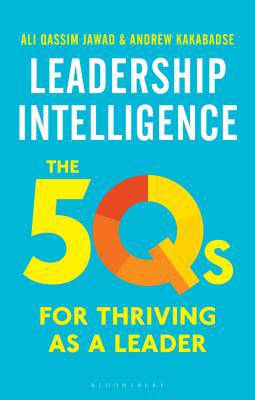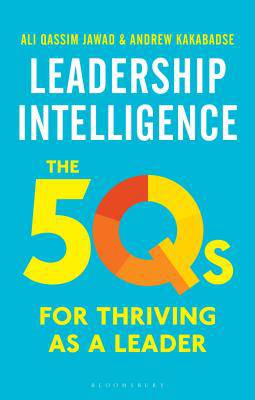
- Retrait gratuit dans votre magasin Club
- 7.000.000 titres dans notre catalogue
- Payer en toute sécurité
- Toujours un magasin près de chez vous
- Retrait gratuit dans votre magasin Club
- 7.000.0000 titres dans notre catalogue
- Payer en toute sécurité
- Toujours un magasin près de chez vous
Leadership Intelligence
The 5qs for Thriving as a Leader
Andrew Kakabadse, Ali Qassim Jawad
Livre relié | Anglais
27,95 €
+ 55 points
Description
How leaders can develop and apply the five key leadership intelligences--cognitive, emotional, political, resilience, moral--for optimal performance.
In today's complex corporate world, contemporary governance calls for a varied and versatile cognitive approach to problems--demanding times require nimble minds and rounded perspectives. The authors' research has identified five key leadership intelligences--the 5Qs--which high-performing leaders need to simultaneously employ in order to achieve transformational change. These are: - IQ (cognitive intelligence): a leader's ability to acquire deductive abilities and draw together contrasting strands of information;- EQ (emotional intelligence): a leader's ability to understand and manage both their own emotions and those of others;
- PQ (political intelligence): a leader's ability to navigate a way forward through diverse stakeholder agendas while ensuring continued engagement with critical players;
- RQ (resilience quotient): the capacity of a leader to emotionally sustain high performance under continued pressure and adversity; and
- MQ (moral intelligence): a leader's ability to understand their own value system and draw on this to determine the moral boundaries of individuals, teams and the organization. The 5Qs come together to inform every aspect of leadership, and each of them can, in different ways, be nurtured and practiced through learning and development. Andrew Kakabadse and Ali Qassim Jawad have tested the 5Qs on leaders worldwide, applying them at all levels of leadership in order to explore the combinations of intelligences needed to become a well-rounded, effective leader in any situation.
Spécifications
Parties prenantes
- Auteur(s) :
- Editeur:
Contenu
- Nombre de pages :
- 216
- Langue:
- Anglais
Caractéristiques
- EAN:
- 9781472963925
- Date de parution :
- 07-05-19
- Format:
- Livre relié
- Format numérique:
- Genaaid
- Dimensions :
- 142 mm x 216 mm
- Poids :
- 362 g

Les avis
Nous publions uniquement les avis qui respectent les conditions requises. Consultez nos conditions pour les avis.






